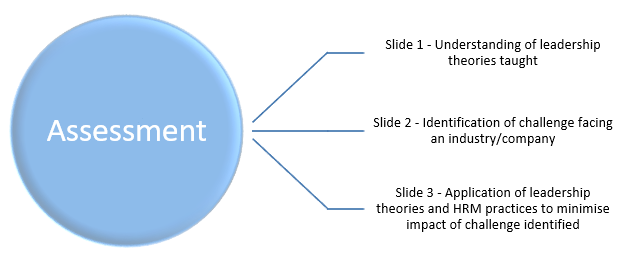Providing effective feedback to students is an important and challenging aspect of the teaching and learning process especially when dealing with a large cohort. One major challenge we faced teaching on a postgraduate module on leadership with over 200 registered students was trying to find ways to provide feedback to each student in a way that allows for inclusivity.
We had trialled various methods to get students engaged and start working on the assessment early enough to make use of formative feedback, but the outcomes have not been encouraging. Providing students with feedback on the module had been extremely difficult in the past not only due to student numbers but also because of the assessment submission dates.
The end of teaching submission time frame had not been particularly helpful because students assumed they had time on their hands and left everything until the very last minute, hence did not have enough opportunities for feedback or to work on feedback received.
Using assessed learning logs as a feedback tool
Last year we decided to trial the use of an assessed learning log, which resulted in an improvement in student engagement and the pass rate of the module in question. The learning logs was designed to cover specific theories and concepts taught on the module and how students would apply these when completing their assessment at the end of term.
Based on O’Connell & Dyment (2011), the requirements of the learning took into account some of the challenges that students might face when completing the writing. For example, we provided an outline to students to help those who might struggle with where to start and how to evidence their learning and engagement.
Students were also encouraged to meet with the teaching team to discuss any difficulties they were facing in relation to the learning logs. To encourage students buy in, the logs contributed 15% towards the final assessment mark.
Students were expected to complete a log of how they have engaged with the theories and concepts taught on the module and keep a record of research carried out for their assessment. At key points during the semester, students brought a PowerPoint slide to class with a summary of what they had done so far and received feedback on how to improve.

These slides had to be included as an appendix in their final assessment submission. The feedback was provided in a manner that allowed students to incorporate the feedback in their assessment and this was very important because research shows that sometimes feedback given to students does not always provide opportunities for students to act on it (Hughes et al, 2015).
Findings and feedback from students
The learning logs were very useful because it encouraged students to engage with the theories at the beginning of term, provided opportunities for feedback sessions before the submission of their assessment and build on other key skills such as critical thinking and research needed at postgraduate level.
Feedback
“The learning log helped me to engage earlier on than I would normally have.”
“PowerPoint slides allowed me to receive feedback which I used to improve my work before the deadline.”
“The outline provided a starting point for me as I wouldn’t know where or how to start without them.”
“Helped me identify areas on the module I did not understand and also confidence to go see my tutor as I had specific questions to ask and also the opportunity to improve my understanding.”
“Developed my critical thinking because I had to think carefully of how I would apply the theories in a practical way to the challenge I had chosen and what the shortcomings might be.”
Josephine Van-Ess

Josephine Van-Ess is a Lecturer in Management and teaches management modules at postgraduate level. Her research interest is innovative and interactive teaching in Higher Education Institutions and hence is always finding new ways to enhance the student learning experience.
Prior to joining Sussex, Josephine worked as a Teaching Fellow at the Business School of University of Nottingham on their China campus and has over 12 years industry experience. She is a Fellow of Higher Education Academy and is a CMBE with CABS.
References
Hughes, G., Smith, H., & Creese, B., (2015) “Not Seeing the Wood for the Trees: Developing a Feedback Analysis Tool to Explore Feed Forward in Modularised Programmes.” Assessment and Evaluation in Higher Education 40: 1079–94
O’Connell, T. S., & Dyment, J. E. (2011) The case of reflective journals: is the jury still out? Reflective Practice, 12:1, 47-59


Leave a Reply